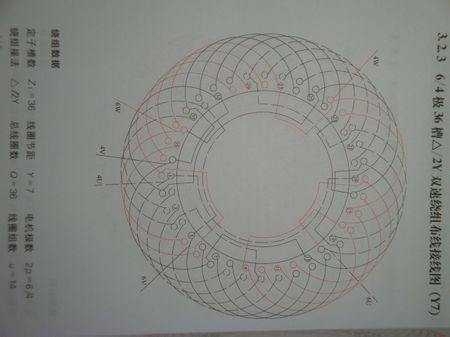下边就跟随我一起掌握高校英语四六级阅读分享,期待对大伙儿的学习培训有一定的协助。
Learning how to write is like taking a course in public speaking. I'd ask whether anyone in class had evertaken such a course. Always a few hands would go up.
"What did you learn in that course?" I'd ask.
"Well, the main thing was learning how to face an audience: not to be inhibited (腼腆)... not to be nervous. "
Exactly, when you take a course in public speaking nowadays, you don't hear much about grammar and vocabulary. Instead. you're taught how not to be afraid or embarrassed, how to speak without a prepared script. how to read out to the live audience before you. Public speaking is a matter of overcoming your long-standing nervous inhibitions.
The same is true of writing. The point of the whole thing is to overcome your nervous inhibitions, to break through the invisible barrier that separates you from the person who’ll read what you wrote. You must learn to sit in front of your typewriter of dictating machine and read out to the person at the other end of the line.
Of course, in public speaking with the audience right in front of you, the problem is easier. You can lookat them and talk to them directly. In writing, you 're alone. It needs an effort of your experience or imagination to take hold of that other person and talk to him or her. But that effort is necessary or at least it' s necessary until you've reached the point when you quite naturally and unconsciously "talk on paper".
习题:
Choose correct answers to the question:
1.The main task of a public speech course is to __________.
A.teach grammar and vocabulary
B. teach how to write a script
C. teach how to overcome nervousness
D. teach live spoken-language expressions
2.Learning how to write is similar to learning how to speak in public in that writer should _____.
A.overcome his or her nervousness in the first place
B. take hold of a reader and talk to him or her before writing
C. learn to use a typewriter or dictating machine
D. talk to himself on paper

3.what does the author compare writing and public speaking?
A.Writhing needs more experience and imagination than public speaking
B.Both writing and public speaking require great effort
C.Writhing is just as imagination as public speaking
D.Writhing is not as natural as public speaking
4.Which of the following statements is TRUE according to the passage?
A.Few students feel the need to learn public speaking
B.Training is necessary before you can speak with a script
C.In public speaking, the audience are more nervous than the speaker
D.Writing is just like making a public speech on paper
5.This selection is mainly about ___________.
A.the effort involved in writing
B.the similarities between writing and public speaking
C.learning how to make a public speech
D.learning how to talk on paper
1.[C]客观事实关键点题。全文第4段,尤其是第4段的后一句说明c为恰当选择项。题中稍具影响性的是D,该选择项中的live一词在第4段第二句结尾也是有出現,但实际上D与该句的含意不同样。
2.[A]客观事实关键点题。题中考察比照处。第5段*一句说明下一句便是演说和创作的共同之处,而A便是对该句的同义替换。别的选择项仍未依照题型的规定比照演说与创作,仅仅表明了创作务必做的,因而都有误。
3.[A]逻辑推理辨析题。题中考察比照处。末尾段比照了演说和创作的不同点,*一、2句和第三、4句产生了本质的比照关联,从而可推断创作比演说更*须工作经验和勤奋,因而可明确A恰当,而C有误。尽管在这里一段可寻找effort和naturally等词,但全文并沒有从是不是要投入一样多的勤奋(B)或是不是当然(D)等层面比照演说与创作,因而B和D也有误。
4.[D]逻辑推理辨析题。依据后一句中的“在紙上讲话”,可推断创作者觉得创作如在紙上作演说一样,因而D恰当。A中的Few students与客观事实不符合;B中的speak with a script在原文中没有谈及;C中的separated by a barrier不正确。
5.[D]中心思想疏忽题。文章内容的开始句便是全篇的主题风格句,创作者在前四段表明如何演讲,从第5段逐渐,创作者转为表明怎样写好文章,文章内容的末尾句对开始句作出了映衬。创作者往往将演说和创作全过程做比较是为了更好地让自身的见解更非常容易、更栩栩如生的被阅读者搞清楚和接纳,因而文中的管理中心內容是紧紧围绕创作,而不是演说。其他选择项尽管原文中都是有谈及,但仅仅每个实际的侧边內容,不可以归纳全篇疏忽。
高校英语四六级阅读分享
核心提示: 下边就跟随我一起掌握高校英语四六级阅读分享,期待对大伙儿的学习培训有一定的协助。 Learning how to write is like taking
- 下一篇:白菜用英语怎么表达
- 上一篇:高校英语四级易考范例分享
更多>同类资讯
- 01-12
英语六级高频词包括哪些
- 01-12
英文四级语法倒装句各种知识分享
- 01-12
英语语法both, either, neither, all, any, none用法
- 01-12
高校英语六级英语语法many,old 和far 知识解读
- 01-12
高校英语四级英语语法知识if only与only if
- 01-12
高校英语六级英语语法知识
- 01-12
英语四级高频词解读分享
- 01-12
大学英语四级语法各种知识分享
- 01-12
大学英语四六级听力每日一练
- 01-12
英语六级优秀作文精解內容
- 01-12
高校英语四级高频词训练
- 01-12
高校英语四级易考范例分享
更多>相关课程
热门资讯
推荐资讯

预约免费试听
只要一个电话
我们免费为您回电









